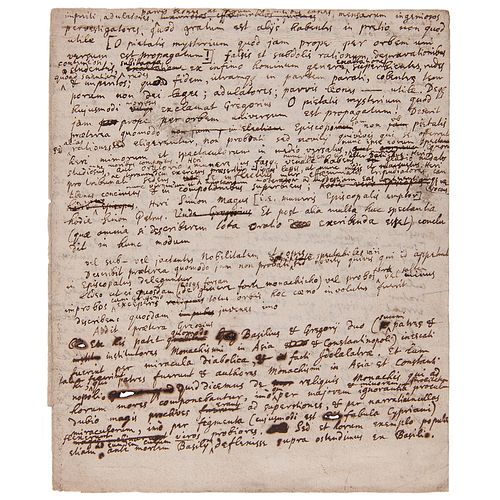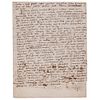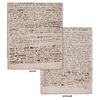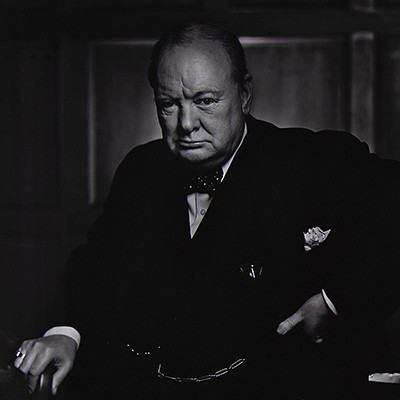Isaac Newton Handwritten Manuscript Criticizing Religion and the Papacy
Two ways to bid:
- Leave a max absentee bid and the platform will bid on your behalf up to your maximum bid during the live auction.
- Bid live during the auction and your bids will be submitted real-time to the auctioneer.
Bid Increments
| Price | Bid Increment |
|---|---|
| $0 | $5 |
| $50 | $10 |
| $200 | $25 |
| $500 | $50 |
About Auction
Feb 22, 2024
RR Auction's first-ever February installment of its Remarkable Rarities series brings some 50+ pieces of history to the auction block, representing the most elusive and extraordinary items offered all year. RR Auction support@rrauction.com
- Lot Description
English physicist, mathematician, and astronomer (1643-1727), widely regarded as the most influential figure in the history of science, whose ideas and discoveries, including calculus, the laws of gravitation and motion, and observations on the nature of light and optics, earned him a place among the most profound geniuses in the history of mankind. Untranslated handwritten manuscript in Latin by Isaac Newton, unsigned, one page both sides, 5.75 x 7.5, no date. A significant manuscript critical of religion and the papacy; Newton claims that the people have been 'brainwashed' into believing religious doctrines. He states that the priests are using false and tricky arguments to convince their followers, and accuses the pope of similar wrong-doings. In small part: "[O pietatis mysterium quod iam prope per orbem universem est propajataum! Falsis et subdolis rationum] Oh, the mystery of piety that has already spread almost throughout the whole world! False and treacherous accounts." In fine condition, with small areas of ink erosion.
Newton’s theology had correlations with his physics—Newton essentially viewed God the Father as the cause of gravity and Christ the Son as the ruling principle of the natural world. For Newton, Christ was different in substance from God and subject to God’s dominion. The 4th-century Church Council of Nicea, which Newton studied, ruled that Christ and God were one in substance—a ruling that ran counter to Newton’s own 'heretical' anti-trinitarian religious beliefs—and Newton repeatedly returned to the topic and re-examined it anew. The present manuscript may pertain to Newton’s long planned, but unpublished, work on The History of the Church.
Scholars now increasingly recognize the importance of Newton’s theological views for an understanding of the whole man and his science. Newton himself kept his heretical religious views secret, and his heirs suppressed his manuscripts on theology for 200 years after his death—and they are only now beginning to see the light of day. A profound, critical religious manuscript from the hand of a genius.
The consignor humorously relates: 'When we acquired this manuscript, we mentioned it to a local priest who was an expert in Latin. He said that he would consider it a privilege to be able to see it and translate it. We brought it in. Several days later, he called and angrily asked if it were a joke! He read us his translation and we all then learned how openly critical Newton was of the papacy.' - Shipping Info
-
Bidder is liable for shipping and handling and providing accurate information as to shipping or delivery locations and arranging for such. RR Auction is unable to combine purchases from other auctions or affiliates into one package for shipping purposes. Lots won will be shipped in a commercially reasonable time after payment in good funds for the merchandise and the shipping fees are received or credit extended, except when third-party shipment occurs. Bidder agrees that service and handling charges related to shipping items which are not pre-paid may be charged to a credit card on file with RR Auction. Successful international Bidders shall provide written shipping instructions, including specified Customs declarations, to RR Auction for any lots to be delivered outside of the United States. NOTE: Declaration value shall be the item’(s) hammer price and RR Auction shall use the correct harmonized code for the lot. Domestic Bidders on lots designated for third-party shipment must designate the common carrier, accept risk of loss, and prepay shipping costs.
-
- Buyer's Premium



 EUR
EUR CAD
CAD AUD
AUD GBP
GBP MXN
MXN HKD
HKD CNY
CNY MYR
MYR SEK
SEK SGD
SGD CHF
CHF THB
THB





